Picture this: you’re strolling through the lush forests of Southeast Asia, the aroma of fresh coffee wafting through the air, when you stumble upon a pile of…well, poop. Little did you know, that unassuming pile of civet droppings is the ticket to one of the world’s most exclusive coffee experiences – Kopi Luwak!!!
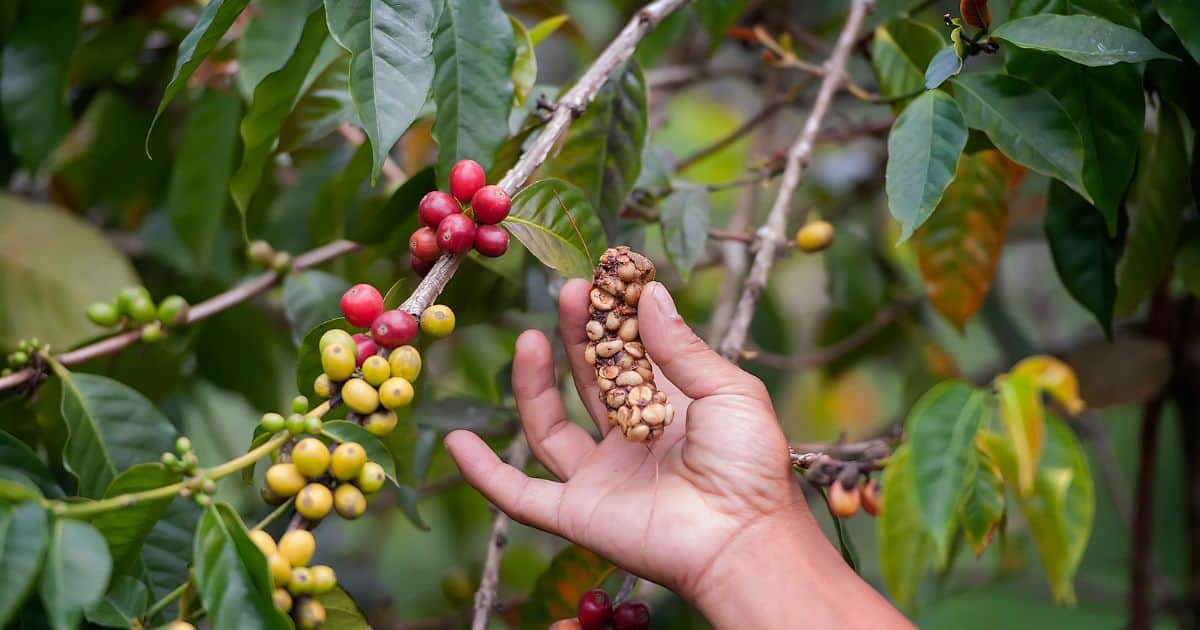
That’s right, folks, we’re talking about coffee beans that have journeyed through the digestive tract of the Asian Palm Civet and emerged as the foundation for a luxurious, albeit somewhat controversial, cup of joe.
In this article, we’ll answer all your burning questions about this peculiar coffee, such as:
What exactly is Kopi Luwak, and how is it made?
What makes wild Kopi Luwak coffee so special?
Why is it so expensive, and how much will a cup set you back?
What does it taste like, and is it worth the price tag?
How can you identify genuine Kopi Luwak and avoid getting scammed?
So, grab your favorite coffee mug and prepare to embark on a wild ride through the world of civet cat coffee!
What Is Kopi Luwak?
Kopi Luwak, also known as civet coffee, is a unique type of coffee that’s made from beans partially digested by the Asian Palm Civet, a small, cat-like mammal native to Southeast Asia. The name “Kopi Luwak” translates to “civet coffee” in English, with “kopi” meaning coffee in Indonesian and “luwak” referring to the civet itself.
The secret to this distinctive coffee flavour lies in the civet’s discerning palate and the fermentation process that occurs within its digestive system. Asian Palm Civets have a taste for the ripest, highest-quality coffee cherries, which they consume for the sweet, fruity pulp surrounding the beans.
As these cherries pass through the civet’s intestines, the beans ferment and undergo chemical transformations, which are believed to enhance their flavor and aroma.
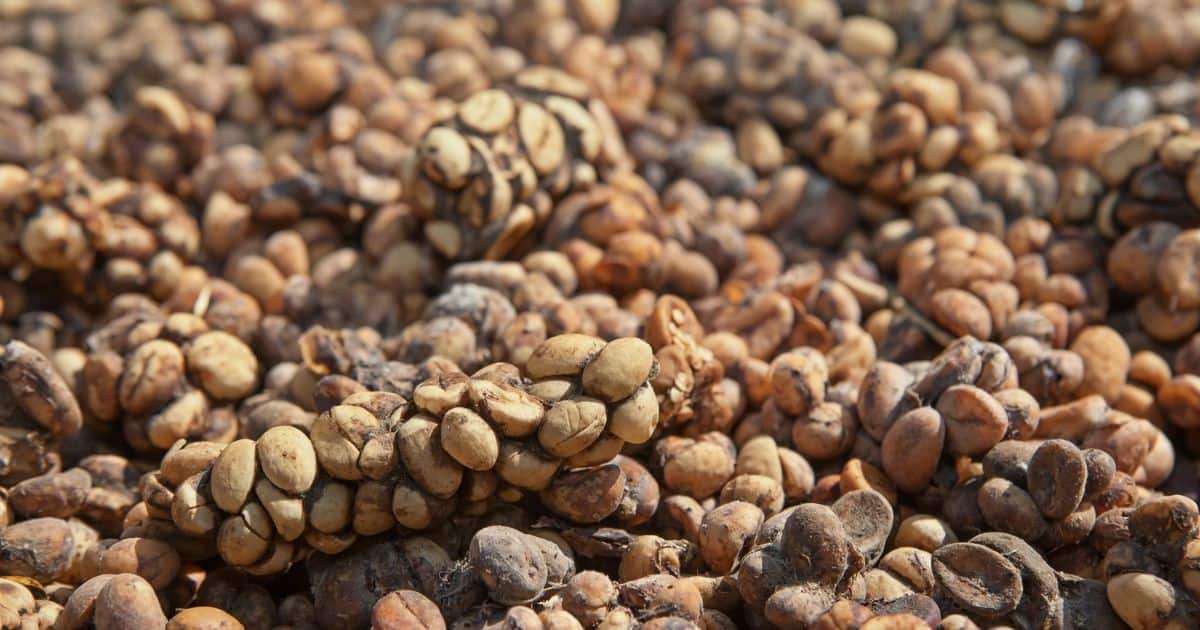
Once the civet “deposits” these beans (yes, we’re talking about poop again), they are collected by local farmers, cleaned, and processed to create the final Kopi Luwak coffee product. The result is a rare, sought-after coffee that is cherished by coffee connoisseurs around the world for its distinct taste and story.
The Making Of Kopi Luwak
The creation of Kopi Luwak is a fascinating process that begins with the Asian Palm Civet’s selective diet and ends with a carefully crafted cup of coffee. Let’s take a closer look at each step of this journey.
The Civet’s Role: Asian Palm Civets play a crucial role in the production of Kopi Luwak by choosing the ripest and best-quality coffee cherries to consume. Their keen sense of smell and natural instincts help them identify the most suitable cherries, ensuring that only the finest beans make it into the final product.
The Fermentation Process: As the consumed coffee cherries travel through the civet’s digestive system, the beans inside undergo fermentation. The beans are encased in a mucilaginous pulp, which contains various enzymes and acids. These substances break down the proteins in the beans, reducing bitterness and altering their flavor profile. The beans remain relatively intact, as they are not digested by the civet.
Collection and Cleaning: After the beans have been excreted by the civet, they are collected by farmers who carefully clean and sanitize them to remove any residual fecal matter. This step is crucial to ensure the safety and hygiene of the final product.
Roasting and Brewing: Once cleaned, the beans are dried, sorted, and roasted to bring out their unique flavors and aromas. The roasting process is similar to that of regular coffee beans, and the beans can be ground and brewed using standard coffee-making methods.
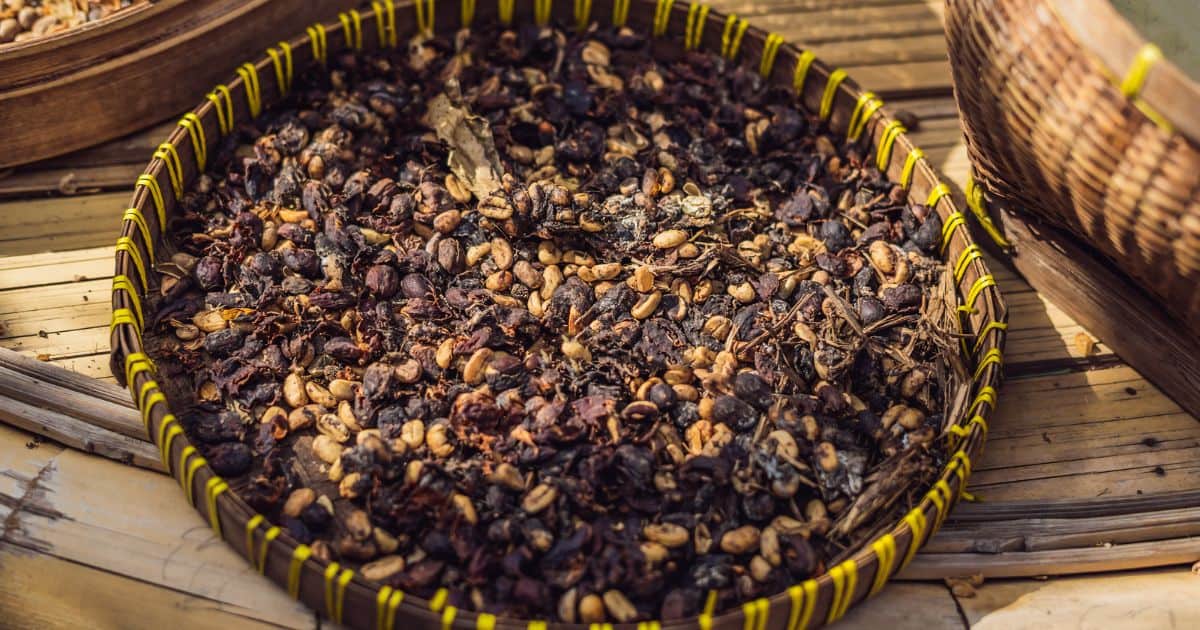
The final result is a cup of Kopi Luwak, a coffee that boasts a rich history, a captivating production process, and a distinct taste that sets it apart from other types of coffee.
Wild Kopi Luwak Coffee
When it comes to Kopi Luwak, not all beans are created equal. There’s a significant distinction between wild Kopi Luwak and its farmed counterpart, with the former being considered the ultimate expression of this unique coffee.
Wild Kopi Luwak: In its natural, traditional form, Kopi Luwak is produced from beans that have been collected from the droppings of wild civets roaming free in their natural habitat. This means that the civets have full control over which cherries they consume, resulting in a more diverse and nuanced flavor profile in the final product.
Wild Kopi Luwak is also considered more ethical, as it does not involve any captivity or manipulation of the civets involved.
Farmed Kopi Luwak: As demand for this rare coffee grew, some producers began to farm civets in captivity to increase production. In these situations, civets are often kept in cages and fed a diet of coffee cherries, which may not be as carefully selected as those chosen by wild civets.
This can lead to a less complex flavor profile and a lower-quality final product. Moreover, concerns have been raised about the welfare of the caged civets, with many animal rights advocates arguing that the practice is inhumane.
For coffee enthusiasts seeking the most authentic and ethically sourced Kopi Luwak experience, wild gathered Kopi Luwak is undoubtedly the way to go.

While it may be more difficult to find and generally comes with a higher price tag, the extraordinary flavor and ethical considerations make it well worth the effort.
Why Is Kopi Luwak Coffee So Expensive?
If you’ve ever looked into purchasing Kopi Luwak, you’ve probably noticed that its price is significantly higher than that of other specialty coffees. There are several factors contributing to the high cost of this unique brew:
Scarcity: Kopi Luwak is an incredibly rare coffee, with only a limited amount produced each year. As wild civets naturally consume coffee cherries at their own pace, the supply is naturally constrained. This scarcity drives up the price, as demand from coffee connoisseurs often outstrips the available supply.
Labor-intensive process: The production of Kopi Luwak requires a significant amount of manual labor. Local farmers must search the forests to find civet droppings containing the beans, and then clean, sort, and process the beans by hand. This time-consuming and labor-intensive process adds to the overall cost of the final product.
Quality and flavor: The unique fermentation process that takes place within the civet’s digestive system is believed to enhance the flavor and aroma of the coffee beans, creating a taste experience that’s difficult to replicate with other types of coffee. This distinctive flavor profile adds to the allure and value of Kopi Luwak, driving up its price.
Ethical sourcing: As awareness has grown around the welfare of captive civets and the importance of ethical sourcing, many consumers are willing to pay a premium for wild Kopi Luwak coffee. This ensures that the civets are not mistreated and can continue to live freely in their natural habitat, and also contributes to a more complex and nuanced flavor in the final product.

These factors combined make Kopi Luwak one of the most expensive coffees in the world, commanding a high price for its rarity, labor-intensive production process, unique flavor, and ethical considerations.
The Cost Of A Cup Of Kopi Luwak
So, how much does a cup of this extraordinary coffee cost? The price can vary depending on several factors, such as the source, quality, and whether it’s wild or farmed Kopi Luwak. Here’s a general idea of what you can expect to pay for a taste of this exclusive brew:
Per Cup: A single cup of Kopi Luwak at a specialty coffee shop or high-end restaurant can range anywhere from $35 to $100 or more. The price will depend on the establishment, the quality of the beans used, and whether the coffee is wild or farmed.
Per Pound: If you’re looking to buy Kopi Luwak beans to brew at home, be prepared for a hefty price tag. Wild Kopi Luwak can cost anywhere from $100 to $600 per pound, while farmed Kopi Luwak may be slightly more affordable, ranging from $50 to $350 per pound.

When comparing the cost of a cup of Kopi Luwak to other specialty coffees, it’s important to remember that its unique production process, scarcity, and flavor profile set it apart from the rest.
While it may not be an everyday indulgence, many coffee enthusiasts consider the opportunity to experience a cup of Kopi Luwak to be well worth the investment.
The Taste Of Kopi Luwak
After learning about the fascinating process behind Kopi Luwak and its hefty price tag, you might be wondering, “What does this exotic coffee actually taste like?” While individual experiences may vary, here’s a general overview of the flavor profile you can expect from a cup of Kopi Luwak:
Smooth and low in acidity: Thanks to the fermentation process that occurs within the civet’s digestive system, Kopi Luwak beans lose some of their natural acidity, resulting in a coffee that’s smoother and less acidic than many other varieties.
Rich and complex: Kopi Luwak is known for its depth of flavor, with a rich and full-bodied taste that lingers on the palate. The coffee may exhibit notes of chocolate, caramel, and even hints of fruit, which can be attributed to the ripe coffee cherries the civets select.
Earthy and aromatic: Due to the unique production process, Kopi Luwak often exhibits a distinct earthiness and a more pronounced aroma than other coffees. This can add an additional layer of complexity to the overall taste experience.
It’s important to note that the taste of Kopi Luwak can vary depending on the specific beans, the region in which they were grown, and the skill of the roaster.
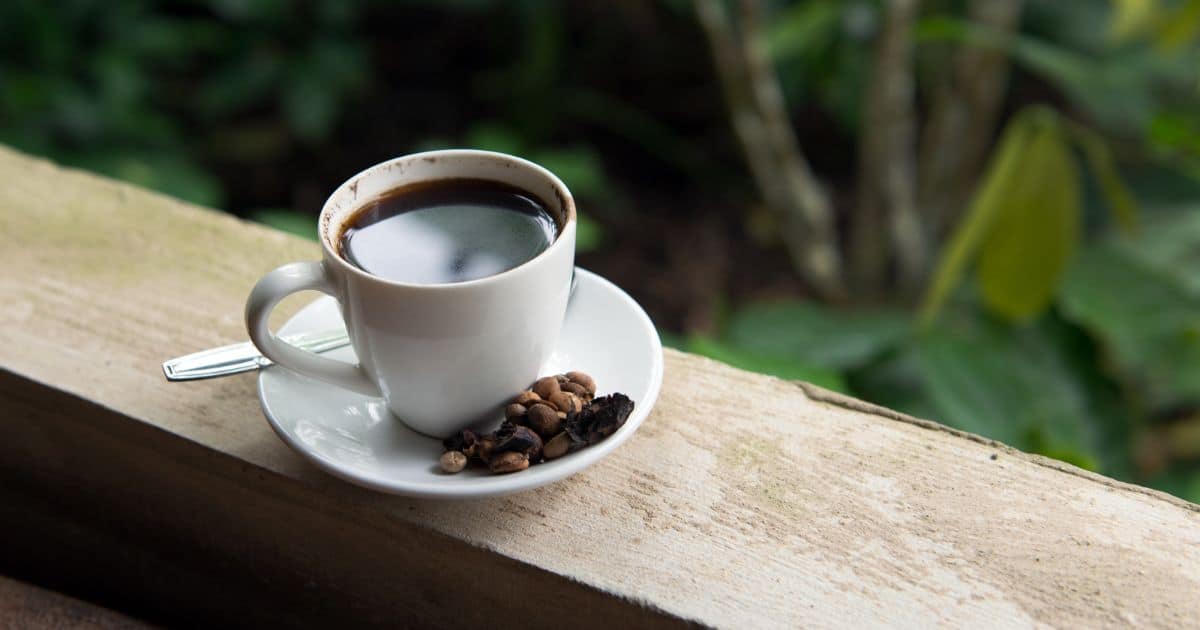
The general consensus among coffee enthusiasts is that Kopi Luwak offers a unique, flavorful and memorable taste experience that stands out from the more typical coffee offerings.
Kopi Luwak Ingredients
Considering the cost and unconventional production process, you might be asking yourself whether Kopi Luwak is worth the investment. The answer largely depends on your personal preferences and priorities. Here are some factors to consider when deciding if Kopi Luwak is right for you:
Taste: If you’re a coffee connoisseur who appreciates complex, unique flavors and is always on the lookout for a new taste experience, you may find Kopi Luwak to be a worthwhile investment. Its smooth, rich profile and distinctive earthy aroma set it apart from other coffees and make it an intriguing addition to any coffee lover’s collection.
Rarity: For those who appreciate the exclusivity and rarity of certain products, Kopi Luwak’s limited availability and labor-intensive production process add to its appeal. Owning and enjoying a cup of this rare coffee can be seen as a status symbol or a bucket-list experience.
Ethics: If you prioritize ethically sourced and produced products, it’s crucial to ensure that the Kopi Luwak you purchase comes from wild civets rather than those kept in captivity. While this may result in an even higher price, it guarantees that you’re supporting a more humane and sustainable coffee industry.
Ultimately, whether Kopi Luwak is worth it comes down to your individual priorities and values. If you’re intrigued by its unique production process, flavor profile, and rarity, it may be an exciting and memorable experience.
However, if you’re content with more conventional coffees and don’t feel the need to explore the world of civet-processed beans, you might prefer to invest in other high-quality, ethically sourced coffee options.
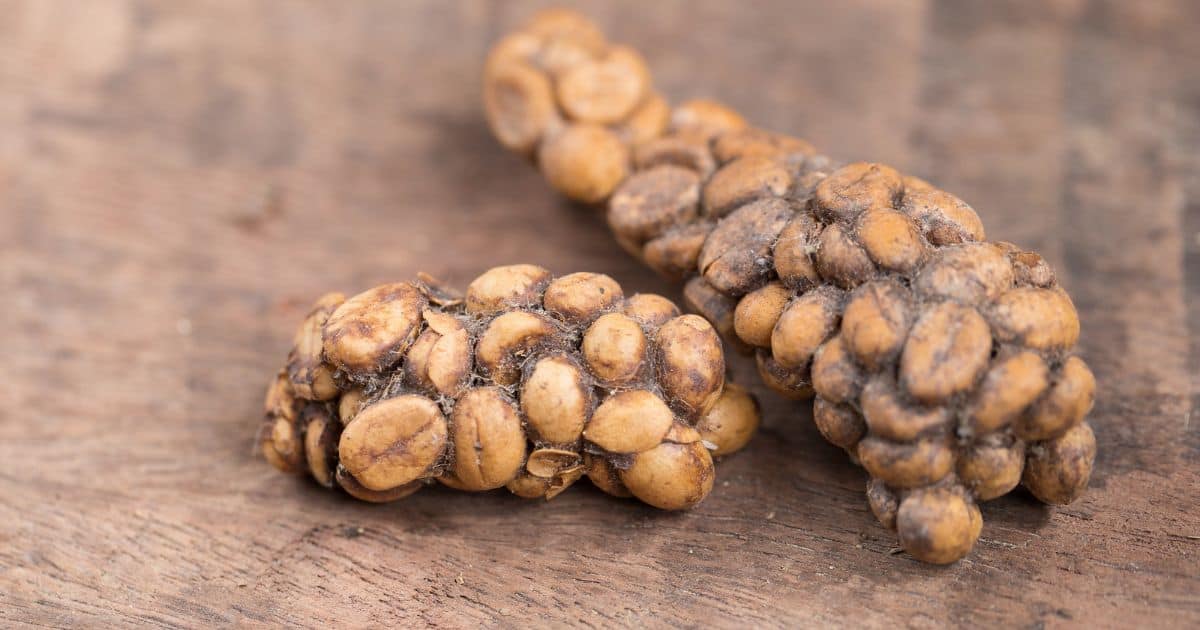
Related Article: Italian Roast Coffee: Flavor, Caffeine, And Everything You Need To Know!
How To Identify Genuine Kopi Luwak
With the growing popularity of Kopi Luwak and its high price tag, the market has seen a surge in counterfeit products that claim to be genuine civet coffee. To ensure you’re getting the real deal, follow these tips for identifying authentic Kopi Luwak:
Trusted sources: Purchase your Kopi Luwak from reputable suppliers, specialty coffee shops, or high-end retailers that have a track record of offering genuine, ethically sourced products. Be wary of deals that seem too good to be true, as they may indicate a counterfeit or lower-quality product.
Certification: Look for Kopi Luwak that comes with certification from a recognized authority, such as the Specialty Coffee Association (SCA) or an organization that focuses on the ethical sourcing of wild Kopi Luwak. This can provide some assurance that the beans have been properly sourced and are genuine.
Appearance: Authentic Kopi Luwak beans tend to have a slightly irregular shape, as the fermentation process within the civet’s digestive system can cause minor deformations. The beans should be relatively intact and have a slightly greenish hue when unroasted.
Aroma: Genuine Kopi Luwak should have a distinct, earthy aroma that sets it apart from other coffees. If the beans smell similar to regular coffee or lack a strong aroma, they may not be authentic.
Taste: As mentioned earlier, Kopi Luwak is known for its smooth, low-acidity profile with rich, complex flavors. If the coffee you’re trying tastes more like a conventional brew or lacks the distinctive characteristics of genuine Kopi Luwak, it may not be the real deal.
By keeping these factors in mind and doing some research before making a purchase, you can increase your chances of finding genuine Kopi Luwak and enjoy the unique taste experience it has to offer.
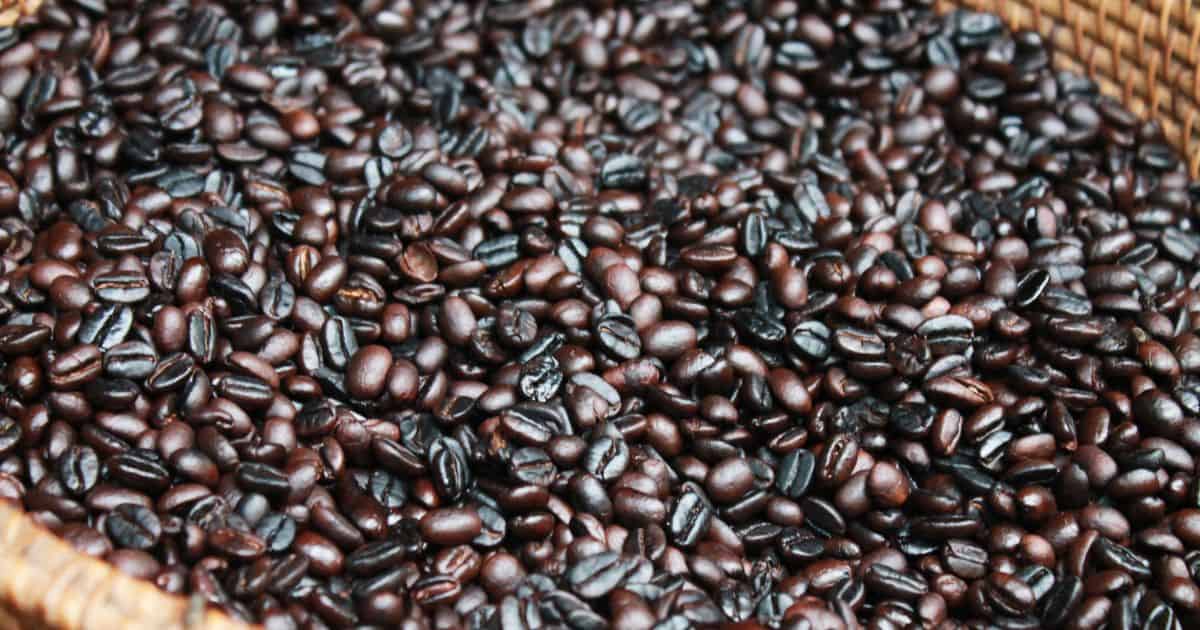
Is Kopi Luwak Worth It?
When deciding whether to try Kopi Luwak, it’s important to weigh the taste, price, and overall experience it offers. Here’s a breakdown of these factors to help you decide if this exotic coffee is worth it for you:
Taste: Kopi Luwak is known for its unique flavor profile, which includes a smooth, low-acidity mouthfeel, rich and complex flavors, and a distinct earthy aroma. If you’re someone who appreciates the nuances of different coffees and is eager to explore new taste experiences, Kopi Luwak may be worth trying.
Price: As one of the most expensive coffees in the world, Kopi Luwak can be a significant investment, particularly if you choose to purchase wild, ethically sourced beans. It’s essential to consider your budget and determine whether the cost is justifiable for the taste and experience it offers.
Experience: The story behind Kopi Luwak’s production and the rarity of the beans can make trying it an unforgettable experience for coffee enthusiasts. If the idea of savoring a cup of coffee produced through such a unique process excites you, it may be worth the investment.
Ultimately, the decision to try Kopi Luwak comes down to personal preferences and priorities. If you’re curious about its unique taste and production process, and are willing to pay the premium for an ethically sourced product, it may be an experience you’ll cherish.
However, if the cost outweighs the potential taste experience, there are plenty of other high-quality, specialty coffees available to explore and enjoy.
Related Articles: French Roast Coffee: The Ultimate Guide for Dark Roast Lovers
Availability Of Kopi Luwak
If you’re eager to try this delicious exotic coffee for yourself, you might be wondering where to find Kopi Luwak. While it’s not as readily available as other specialty coffees, there are still several ways to track it down:
Specialty coffee shops: Some high-end coffee shops and cafes may offer Kopi Luwak on their menu, either brewed by the cup or available as whole beans to take home. Be sure to ask about the source of their Kopi Luwak to ensure it’s ethically sourced and genuine.
Luxury hotels and restaurants: Upscale hotels and fine dining establishments sometimes serve Kopi Luwak as a special offering for their guests. This can be a convenient way to try a cup without having to purchase an entire bag of beans.
Online retailers: Many specialty coffee retailers and roasters offer Kopi Luwak for sale on their websites. Make sure to choose a reputable seller with good reviews, and look for certifications or other evidence that the coffee is ethically sourced and genuine.
Travel: If you happen to be visiting countries where Kopi Luwak is produced, such as Indonesia, the Philippines, or Vietnam, you may have the opportunity to purchase it directly from local farmers or cooperatives.
This can be a great way to support the communities involved in its production and ensure that you’re getting an authentic product.
When searching for Kopi Luwak, it’s essential to prioritize ethically sourced, wild civet coffee to support sustainable and humane practices. While it may take a bit of effort to find, the unique taste experience and the knowledge that you’re supporting ethical coffee production make it well worth the hunt.
Key Takeaways
Before we wrap up our exploration of Kopi Luwak, let’s summarize the key points we’ve covered in this article:
Kopi Luwak, also known as civet coffee, is produced from coffee cherries that have been partially digested and excreted by the Asian Palm Civet. The fermentation process that occurs within the civet’s digestive system is believed to enhance the flavor of the coffee beans.
Wild Kopi Luwak is considered more authentic and ethical compared to farmed Kopi Luwak, as it involves civets living freely in their natural habitat and results in a more diverse and nuanced flavor profile.
The high cost of Kopi Luwak is attributed to its scarcity, labor-intensive production process, unique flavor, and ethical considerations.
Genuine Kopi Luwak is known for its smooth, low-acidity profile, with rich and complex flavors that set it apart from other coffees.
To ensure you’re purchasing authentic Kopi Luwak, buy from trusted sources, look for certifications, and pay attention to the appearance, aroma, and taste of the beans.
When deciding whether to try Kopi Luwak, consider the taste, price, and overall experience it offers. If you value its unique flavor and production process, and are willing to invest in an ethically sourced product, it may be worth the experience.
By considering these factors, you can make an informed decision about whether to try Kopi Luwak, and if you do, remember to prioritize ethically sourced, wild civet coffee to support a more sustainable and humane coffee industry.
The Final Verdict On Civet Cat Coffee
As we’ve explored the world of Kopi Luwak, we’ve delved into its unique production process, flavor profile, ethical considerations, and the factors to weigh when deciding if it’s worth trying. Kopi Luwak presents a fascinating intersection of nature, taste, and luxury, offering a truly one-of-a-kind experience for coffee aficionados.
Whether you decide to indulge in a cup of this rare and exotic coffee or prefer to stick to more traditional brews, the story of Kopi Luwak serves as a reminder of the incredible diversity and complexity that exists within the world of coffee. If you do choose to embark on the Kopi Luwak journey, prioritize ethically sourced, wild civet coffee to support a sustainable and humane coffee industry, and savor the unique flavors this remarkable brew has to offer.
Frequently Asked Questions
What Is The Rarest Coffee In The World?
The rarest coffee in the world is often considered to be St. Helena coffee, which is grown on the remote island of St. Helena in the South Atlantic Ocean. The island’s isolation, limited production, and the coffee’s unique flavor profile make it highly sought after and extremely rare.
Other contenders for the title of the rarest coffee include Hacienda La Esmeralda Geisha from Panama and, of course, wild Kopi Luwak.
What Is Monkey Coffee?
Monkey coffee, also known as monkey parchment coffee or Jacu Bird coffee, is another type of coffee that is processed by animals. In this case, the beans are collected after being eaten and excreted by monkeys or Jacu birds, depending on the region.
Similar to Kopi Luwak, the fermentation process that occurs within the animal’s digestive system is believed to enhance the flavor of the beans. Monkey coffee is primarily found in countries like India, Taiwan, and Brazil, and like Kopi Luwak, it is known for its rarity, unique production process, and distinctive flavor profile.
How Is The Welfare Of Civets Ensured In Ethically Sourced Kopi Luwak?
In ethically sourced Kopi Luwak, the welfare of the Asian Palm Civets is prioritized by collecting beans from wild civets living freely in their natural habitats. This allows the animals to roam, forage, and live without the stress of confinement or force-feeding.
Organizations that certify ethically sourced Kopi Luwak have strict guidelines to ensure the protection of the civets and their habitats, as well as the sustainability of the coffee production process. By choosing wild, ethically sourced Kopi Luwak, consumers can support humane practices and discourage the exploitation of these animals for profit.
Does The Asian Palm Civet Have Any Natural Predators?
The Asian Palm Civet does have natural predators, including larger mammals, birds of prey, and reptiles. Some of its known predators are pythons, eagles, and leopard cats. However, the civet’s nocturnal lifestyle, agility, and ability to climb trees help it avoid many potential threats.
Habitat loss and human activities, such as hunting and trapping, pose a more significant risk to the Asian Palm Civet population than its natural predators.
Is There A Way To Replicate The Taste Of Kopi Luwak Without Involving Civets?
There have been attempts to replicate the taste of Kopi Luwak without involving civets by using various fermentation methods. Some companies have developed proprietary techniques to mimic the fermentation process that occurs within the civet’s digestive system.
While these methods can produce coffee beans with a unique flavor profile, the resulting taste may not be an exact replica of genuine Kopi Luwak. Additionally, part of the allure of Kopi Luwak comes from its unusual production process and the involvement of the civet, which cannot be replicated in a lab setting.
